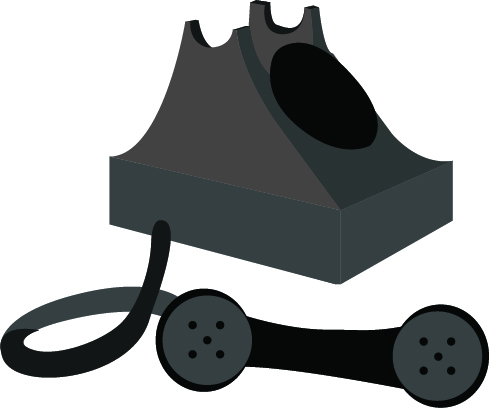A big banner flew over the entryway of the Student Center this week with a bold statement “Don’t Call the Police.” The idea of calling the police as an immediate response is rooted in an understanding of police as protectors, but a group of students sought to disrupt this idea at an event about alternatives to calling the police.
As activists continue to draw attention to police brutality and the harm policing brings to minoritized communities, sociology and criminal justice academics explore alternatives to this structure that seems on the surface to be so inherent to a functioning society.
Jesse Goncalves, a fourth-year applied math major, was a part of the team that put together the event. He said the event was important so that people could remain cognizant of the struggles people face with the police.
“I grew up in a very middle-class neighborhood and I’m white, and I think as a result of those identities and the context that I grew up in I had a very positive relationship with the police,” Goncalves said. “So, I had to come to understand that the police don’t fill that role for everybody.”
Part of understanding this is learning about the history of the institution of the police force and how their background as strikebreakers and slave-catchers affects how they operate today. This history can lead to them disproportionately affecting groups that have been seen as threats to those in power.
“I think there are so many remnants of the roles that the police first filled when they were first created… in terms of urban communities protecting corporate and middle-class property and in rural communities being basically slave catchers,” Goncalves said.
The process of educating people about how getting the police involved can be detrimental to people who might be unfairly targeted by law enforcement. Those with positive understandings of the police may not fully understand how their simple act of calling the police can have devastating effects on others’ lives, especially when personal misinformation and implicit biases cause them to unfairly suspect various people. This is one of the main reasons Molly Mattingly, a fourth-year public affairs and sociology major, wanted to get involved in the project.
“I wanted to give others the opportunity they may not get in the classroom to learn about how our internalized biases impact how we move about the world and how actions we may take as privileged people can mean life or death for others,” Mattingly said.
While fighting against years of societal racism isn’t an easy task, the goal of this event was to show people that they had other options than calling the police. Proposed solutions included holding de-escalation, conflict-resolution, first-aid, and selfdefense workshops, so that people in your community can become more independent of the police. Another strategy was that people shouldn’t assume that possibly suspicious figures are doing something illegal just because their actions seem odd, as they might be suffering from a mental health condition.
A big theme of the event was utilizing resources apart from the police, like keeping a list of community resources, such as suicide hotlines, so that members of the community can solve problems before trying to get the police involved.
Danni Jo Bechtold, a third-year social work major, talked about how the group that planned this event came together to provide different viewpoints on the issue to generate discussion.
“Our relationships to each other unified the group,” Bechtold said. “We all had really solid friendships and took care of each other because we know we’re interested in this type of work for the long haul.”
There will be a follow-up event on Feb. 21, where the organizers hope to continue this conversation. It will be focus on how the criminal justice system works, and how we can use that understanding to create communities that are more supportive, so that the police do not have to be called. Bechtold said that the next event would focus on actionable solutions that people can focus on instead of calling the police.
“In February, folks can look forward to building with each other alternatives to policing that don’t exist yet,” Bechtold said. “We’re going to be talking about what healthy communities who take care of each other would look like and what tangible steps can be done for us to start living in a world without state sanctioned violence.”
The editor may be reached at
news@su-spectator.com






